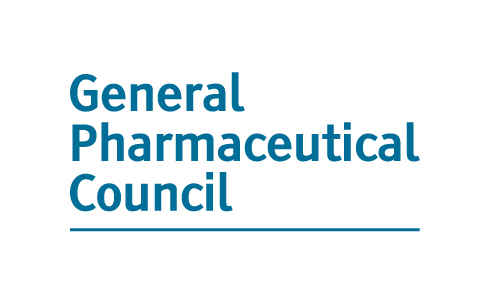NPA ballot results overwhelmingly in favour of collective action
)
Independent community pharmacies in England, Wales, and Northern Ireland have signalled their readiness to scale back services in the new year, following an unprecedented vote in favour of collective action in the recent ballot held by The National Pharmacy Association (NPA).
Representing 6,500 of the UK’s community pharmacies, The NPA is calling for an annual £1.7bn funding increase to plug the 'financial hole'. Announcing the results on 14 November, over 63% of NPA members participated in the vote, which concluded with near-unanimous support for action to address the funding crisis that has left many pharmacies on the brink of closure.
Ballot results and proposed measures
Pharmacy owners voted overwhelmingly in favour of several measures designed to address the financial strain while maintaining patient safety:
-
97.8% voted to serve notice on opening hours above the minimum required by their contract – meaning fewer pharmacies would be open in the evenings and at weekends
-
93.3% voted to stop free home deliveries of medicines
-
96.1% voted to withdraw from locally commissioned services, including some local addiction support services, emergency contraception and stop smoking support
-
99.2% voted to refuse to co-operate with certain data requests above those required for patient safety and contractual minimums
-
96.8% voted to stop supplying free monitored dose systems other than those covered by the Disability Discrimination Act
A decade of decline
The ballot comes amid warnings of widespread pharmacy closures, rising operational costs, and stagnant government funding. According to the NPA, over 700 pharmacies have closed in England over the past two years, with more than 1,250 closures recorded in the last decade.
“Pharmacies desperately want to support their local communities with access to medicines and advice but have been forced into an untenable position by a decade of underfunding which has led to a record number of closures,” said NPA Chair Nick Kaye.
At the heart of the crisis is the stagnation of government funding for community pharmacies. The £2.6 billion total, unchanged over the past decade, represents a 40% reduction in real terms when adjusted for inflation since 2015/16. Meanwhile, operational costs, including rising utility bills and staff wages, have surged.
The NPA also highlighted the disproportionate impact of recent fiscal changes, most notably the October 2024 Budget bringing increases in the National Living Wage and National Insurance Contributions. From April 2025, the National Living Wage will rise by 6.7%, alongside a National Insurance hike to 15% for employers, with the salary threshold at which it is paid falling from £9,100 a year to £5,000. While the NHS and rest of the public sector are exempt from the tax rise, community pharmacies are not and have not been given additional support to meet these increased costs.
Reflecting on the budget, Kaye stated: “The sense of anger among pharmacy owners has been intensified exponentially by the Budget – with its hike in National Insurance employers’ contributions and the unfunded National Living Wage increase – which has tipped even more pharmacies to the brink.
“The ballot result overwhelmingly shows the sheer anger and frustration of pharmacy owners at a decade of cuts that is forcing dedicated health professionals to shut their doors for good.
“We strongly agree with the new government’s ambition to boost community health care and hope to meet with them to discuss a new funding deal for pharmacies and modernisation of pharmacies to increase the number of clinical services they deliver, as long as they are properly funded.
“Pharmacies don’t want to reduce services, but we will be left with no option but to suggest that pharmacy owners should consider acting on the clear ballot results if government does not act to protect this vital and much-loved part of our health service.”
Paul Rees, Chief Executive Officer of the NPA, echoed these sentiments, taking aim at the government’s lack of clarity and delay in funding negotiations: “The deal that we’re talking about now should have been announced in April,” said Rees.
“Every couple of weeks you hear that there might be a deal around the corner, but it never materialises…We need the government to move fast and we’re just not seeing that.”
How has the result been received?
With widespread media attention following the ballot results’ announcement, several key organisations came forward in support of the NPA. Malcolm Harrison, CEO of the Company Chemists’ Association echoed the concerns raised by the NPA, describing the ballot results as indicative of the severe pressure pharmacy contractors face:
“The results of the NPA ballot serve to underline the huge pressure that pharmacy contractors face, following a decade of underfunding. It is imperative that CPCF renegotiations for 2024/25 commence without delay.
“The Government and NHS must uplift all elements of the contractual framework, to stop further reductions in pharmacy opening hours and permanent pharmacy closures, and to ensure that patients can continue to receive the medicines and clinical care and advice they need.”
Likewise, Numark chair Harry McQuillan said the ballot result had “once again brought into sharp focus the financial crisis facing community pharmacies – but for many independent pharmacies, this is an everyday reality that has reached breaking point. Rising operational costs including the increase in national insurance and minimum wage will push many to the brink.”
“Our members across the country, but especially those in England, are sharing stories of overwhelming financial strain, and, sadly, some have had to close their doors for good,” he continued.
“Each closure leaves a gap in healthcare provision, impacting patients who rely on their local pharmacy for advice, care, and essential services.
“Independent community pharmacies need immediate, sustainable funding from the Government to keep their doors open. Without action, more closures are inevitable, and the ripple effect on community healthcare will be profound.”
Meanwhile, in response to the results and public pressure on the government, Health Secretary Wes Streeting criticised the NPA’s proposed measures, describing the vote as an “unhelpful degree of sabre rattling” and warning that it will “harm patients” and “put pressure” on other parts of the healthcare system.
In response to Streeting’s claim that collective action by pharmacies would lead to patient harm, Paul Rees suggesting that it was better communities had a pharmacy offering reduced services than for there not to be a pharmacy at all.
“We do know that some patients will be affected, and that’s something to be regretted. No one proposes action that could affect patient care lightly,” he added.
“Unless these steps are taken, more and more pharmacies will close because they’re running on empty. They are doing more work than they’re being reimbursed for. And if they take these measures, such as stopping free delivery of medicines, stopping free blister packs, if they reduce their hours to core hours, that will make them more financially sustainable, which means they won’t have to completely close down and can still serve patients.
“If they carry on doing all the things they’re doing for now, there’s more chance that more pharmacies will go to the wall, and that’s something we want to prevent in order to safeguard the services that patients receive in local communities.”
Commenting on the impact of potential action in the new year, Dr Leyla Hannbeck, Chief Executive of the Independent Pharmacies Association, said: "As healthcare professionals, we believe that patients must not be caused suffering by any withdrawals of our members' valuable and vital professional services.
"The government must urgently raise pharmacy funding to prevent further closures of community pharmacies."
Next Steps
The NPA board is set to meet in December to finalise its recommendations. While the association remains open to dialogue with the government, it has made it clear that without significant additional funding, pharmacies will be forced to act.
In the meantime, the NPA says it will continue to advocate for a modernised funding agreement that reflects the growing demand for pharmacy services and ensures long-term sustainability.
The coming weeks will be crucial for determining whether community pharmacies can secure the support they need to avoid further closures and protect the essential healthcare services they provide.
Looking forward to the year ahead, Nick Kaye emphasised exactly how crucial the forthcoming weeks will be, "Pharmacy owners are not a radical bunch, we have never proposed action like this before, but after a decade of underfunding and record closures, something simply has got to give.”


)
)
)
)
)
)
)
)
)
)
)
)
)
)
)
)
)
)
)
)
)
)
)
)
)
)
)
)
)
)
)
)
)
)
)
)
)

.png/fit-in/500x500/filters:no_upscale())
)
)
)
)
)
)
)
)
)
)
)
)
)
)
)
)
)
)
)
)
)
)
)
)
)
)
)
)
)
)
)
)
)
)
)
)
.png/fit-in/1280x9999/filters:no_upscale())
)
)
)
)
)
